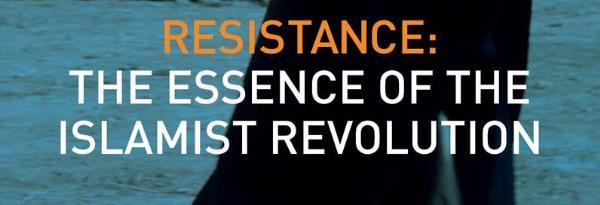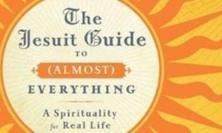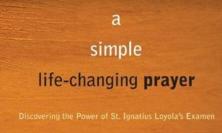Were you to gather a cross-section of educated British Catholics, a sizeable segment among them would be left-of-centre, social liberals with a sneaking regard for Liberation Theology but an ingrained distaste for political Islam. Another group would be right-of-centre quietists, largely ignorant of and perhaps even indifferent to atrocities perpetrated in their name on poorer parts of the globe by western military and economic might. Members of both groups would benefit, in their different ways, from reading this absorbing but flawed book which bids us let go of some of the certainties we entertain about modern life.
Alastair Crooke, a former member of British intelligence, has spent years in the Middle East. Judging by this book, he has at some stage gone through an ideological awakening to the way in which the policies of ‘the West’ impact on the Islamic world. Particularly sobering has been his discovery that what Islamists (those who see Islam as a political ideology) say and believe has been systematically misrepresented in western countries as a creed of obscurantism and violent hatred. If your gut reaction to names like Hamas and Hezbollah is that they are essentially terrorist organisations and that their ideas are of no interest to any civilised person, Crooke would say you have been a victim of very effective indoctrination. This book is an attempt to redress the balance by putting forward a much more sympathetic case.
If we are to stand any chance of reinvigorating our moral and political life, let alone of responding to global challenges which seem to pile higher every day, ‘waking up’ is going to become, one hopes, an increasingly common experience for all of us. In Britain it will come about for many through encounters with Muslims, some of whom might be Islamists of one variety or another. An appealing feature of Resistance is the way in which Crooke shares a number of the conversations which have helped him shape his new worldview, including a long exchange with an erudite Iranian cleric about the ‘essence of Islamism’ and the central place it gives to ‘human values’ (a line which, I must say, needs a little more analytical and critical attention than Crooke gives it). It’s true that relying on personal witness involves a disadvantage: Crooke offers precious little reference to authoritative Islamist texts, so the repeated statement that ‘Islamists believe’ this, that or the other leaves one wondering exactly what warrant there is for such an assertion. Contemporary Islamism is, to say the least, a broad church. But, to be fair, Resistance doesn’t pretend to be a scholarly work.
Nor is it trying to be neutral. Crooke makes the point that Islamism’s image is already so besmirched in Europe that prefacing his case with the usual nods towards gender issues and an indiscriminate condemnation of violence would simply force him into an apologetic stance he ardently does not want to adopt. When you are trying to alert your readers to a serious civilisational blind spot, you can afford to omit the customary courtesies and jump straight into the hot water. Even so, the demanding task of taking responsibility for a measured judgment cannot be postponed indefinitely; perhaps in a subsequent book, Crooke will manage to do that as he goes a little deeper into matters he touches upon only lightly in the present volume.
The principle area which needs more penetrating analysis is Islamist thought itself. You certainly need have no fear of having to wade through too much Islamic theology here. Crooke is good at bringing out the decisive contribution to the Islamist revolution made by Shi’i thinkers; many Sunni readers will be surprised, perhaps even nonplussed by this. His view that Islamism is essentially a resistance movement is also a strong thesis which contrasts with a widespread perception that it is a utopian project. But overall, Crooke does not seem at home navigating religious ways of thinking; nor does he offer any clues as to his own religious affiliation, giving the impression of being a sympathetic observer rather than a practitioner. Given that one of his arguments involves the substantial claim that the clash between the West and Islam is essentially religious in nature (‘the West’ being irreducibly Protestant in character), this and his evident discomfort in managing theology – Christian and Muslim – are weaknesses and, in fact, subtly undermine his whole project. Ultimately, Islamism is more interested in God than ‘human values’; it would be good to know what Crooke thinks about the Deity too.
Throughout the book, Crooke shows a heavy reliance on an eclectic group of ideological sources: Terry Eagleton, Michel Foucault, John Gray, Melanie Klein, Walter Russell Mead and Slavoj Žižek; sometimes one has the impression of a philosophical collage. The result is that, in his haste to tell us everything that he has seen and learned, Crooke sometimes loses control of what are otherwise tightly argued positions. An example. He gives us a convincing explanation of how western societies have relied for several hundred years on a secularised account of providence, Adam Smith’s ‘invisible hand’: to put it simply, as long as each individual sits back and takes care of his/her own interests, things will just keep getting better and better, socially, politically and economically. He then points out, quite correctly, that such a notion has led to no end of suffering throughout the world, is manifestly untrue, and is anathema to Islam. Not much hope for whiggish optimism, you might think. But then, in an otherwise extremely welcome discussion of the contribution of Henri Bergson’s ideas to modern western and Islamic thought – ideas which are themselves predicated on an evolutionary paradigm of progress – we suddenly find him endorsing Bergson’s ‘open’ style of religion at the expense of traditional, literalist ‘closed’ religion. I would say that there is a fatal inconsistency here which needs some more thinking through.
Many people will take an instant dislike to this book and it seems a shame to waste time drawing attention to the fact. Does Crooke caricature the West? Yes, to a certain extent. Does he ignore important material factors in accounting for global conflict? Yes, again. Is he trying to do too much? Certainly: ten arguments in under 300 pages makes for dense reading. And yet the task of waking our society up to the huge gulf between our benign self-understanding and the real, painful consequences of what we say, do and believe is such a great and urgent one that all this can and should be forgiven. This is a provocative, brave and timely publication which will help anyone with a vaguely open mind and thoughtful faith to engage with some complex spiritual and religious issues being faced by countless millions of people around the world.
The reviewer, Damian Howard SJ, is studying for a PhD in Christian-Muslim relations and is a member of the editorial board of Thinking Faith.






